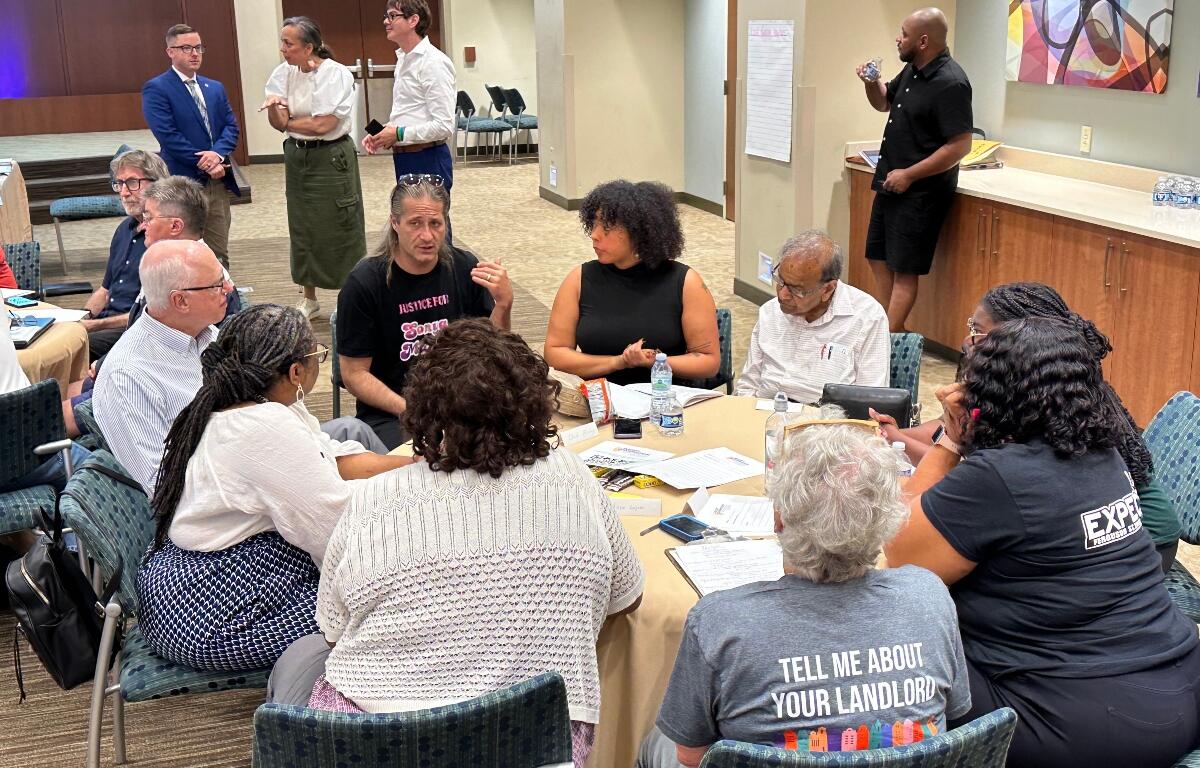Springfield, IL (CAPITOL CITY NOW) – They’re making final recommendations, but they’re not done yet.
The Massey Commission, formed following the police-involved shooting death of Sonya Massey, says more meetings are being planned, including one in October, after it was thought Monday’s meeting would be its last.
Speaking of recommendations, commission member Brian Wojcicki says when it comes to crisis response and mental health help, outside of police, there’s just not enough of it around here.
“Recommended action…involves a review of statutory and grant manual requirements for potential expansion of those who are qualifies to provide non-law enforcement behavioral health services, while trying to respect the integrity of the service being provided,” said Wojcicki. “This would be an opportunity for more access without more cost.”
Wojcicki also says Springfield Police should renew its application for grant funding allowing crisis response in a “co-responder” fashion, and there also should be some form of training of dispatchers in this regard as well.
In terms of economic-related disparities, commission member Veronica Espina said one of the big areas that’s keeping minorities from succeeding in this area, is a lack of economic development efforts that can really help them.
“If structural inequities persist, and marginalized groups remain under-represented and excluded in policymaking and leadership, minority-owned businesses remain excluded from the economic development, perpetuating cycles of inequity, and families remain unable to participate fully in the workforce, limiting economic mobility and staying in cycles of poverty,” said Espina.
Problems, Espina says, can impact small businesses as well as larger ones, all owned by minorities.
The commission suggested expanding healthcare access, the development of a housing coalition, and expansion of SMTD routes, making it easier for people to get to work and job interviews.
Another area discussed was never forgetting the past, in terms of the negative treatment of minorities by law enforcement.
“These spaces needed to acknowledge and take ownership of the issues at play and the violence involved in policing in Sangamon County,” said Kristin Rubbelke, commission member. “(A) commemorative plaque is not supposed to be a remembrance to one person. It is supposed to encompass violence that has happened in terms of policing throughout Sangamon County. The language that is supposed to be put on this plaque is supposed to demonstrate efforts of healing to our community.”
The plaque is expected to be located in a planter outside the Sangamon County Complex, Rubbelke said.
Full reports on recommendations from the Massey Commission are expected to be posted to the county’s website, linked above, at some point in the near future.



